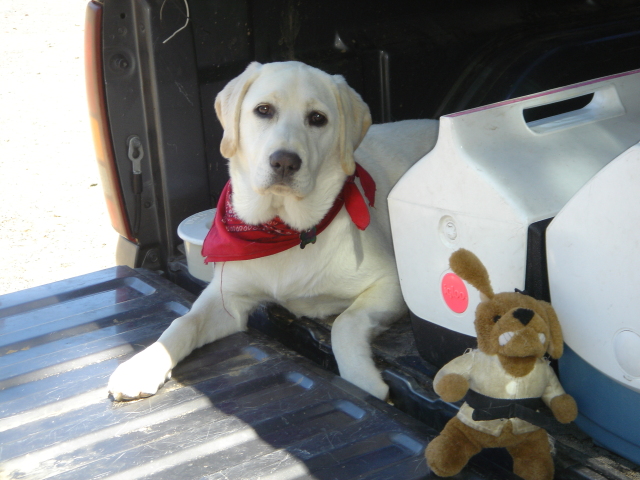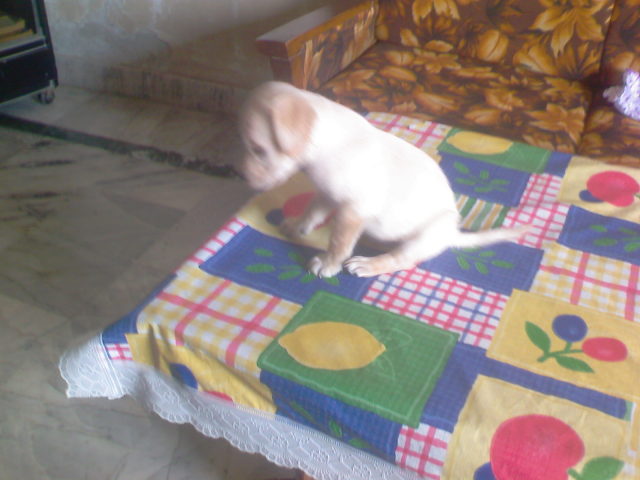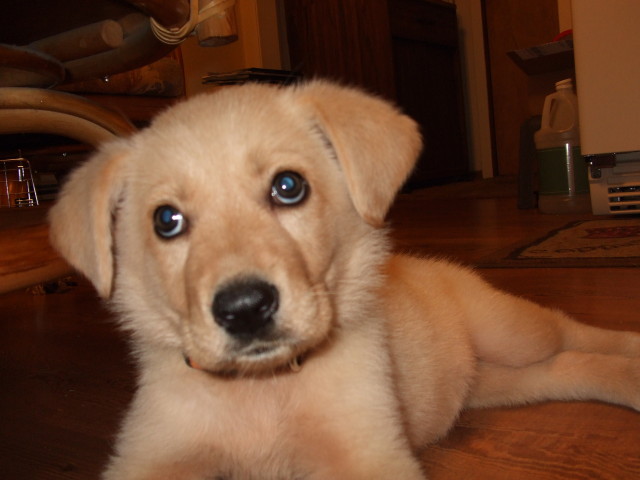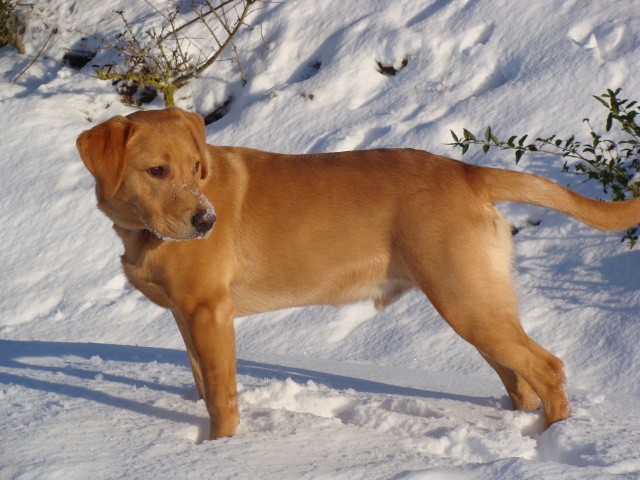Questionhi. i have a 15 week old yellow lab. i feed him dog food (science diet for puppy large breed) and milk three times a day. i can say he's healthy and all but i want to maximize his growth (not overweight but tall). he takes vitamins and calcium. is there anything else i can do? can i add ginseng to his diet? also, is science diet a good premium brand for this kind of breed? and when do i stop giving milk? looking forward for your answers. thanks
AnswerWhat you are doing is totally different from what I would be. I have learned most of what I know about dogs raising puppies for a large dog school and similar programs. Nobody has more resources to determine the best practices and the incentive to do so and share what they know with those caring for their dogs. The dog guide school breeds hundreds of labs a year. They provide all the medical care for most of them the first year. At the end of it, they do a complete physical including hip X-rays on all of them. They then spent $35,000 training them before giving them away. They have a large data base of breeding records. Dogs with any physical or temperamental problems are unfit for the program and are a waste. Their well equipped clinic and vet staff are available for serious problems as long as the dog is working. When the dog is no longer able to work, it is replaced at again the $35,000 plus a large emotional upheaval for the person depending on the dog. They have experimented with different diets and exchanged data with other such breeders. Don't you think that what ever they are feeding is healthy and safe? What kinds of controlled studies do you have backing your choice of diet? How objective are the sources of your information? Is your dog's health, their top priority?
Stick with the Science Diet. One of the leading dog guide schools is having great success with it. Cut out the milk, the calcium, and everything else. Excess calcium is one of the worst things you can give a large breed puppy. too much of too rich of a diet can ruin a puppy's joints. We all want to see our puppy mature into a fine, large dog, but nobody wants a cripple.
You should be feeding a puppy chow now. Switching to an adult chow for the larger breeds at 4 months, slows growth and helps develop sturdier joints.
Your dog definitely should be narrower at the waist than the hips and chest. You should be able to easily feel the ribs, but not see them. Each dog is different. Standard recommendations are a good place to start, but each dog must have its food and exercise adjusted to its individual needs. Here is a link to a good illustrated guide, http://www.longliveyourdog.com/twoplus/RateYourDog.aspx
There was an extensive discussion of weight in a recent newsletter from a service dog school. We have raised puppies for them too.
''Obesity is the number one nutritional disease affecting dogs. It's estimated that 25-45% of dogs in the US are obese. Studies have shown that joint and locomotive problems increase by 57%, circulatory problems by 74%, respiratory problems by 52%, skin problems by 40% and cancer by 50% in animals that are overweight.
Large breed dogs that are overweight also are more prone to developing hip dysplasia. Obesity is especially dangerous for young puppies, as their underdeveloped frame cannot support the extra poundage that it must carry.''
Less of a less rich diet, will only delay reaching its final adult size a few months, but add years of active life.

 the furious nature of my lab
Question
hero-male lab
he is a fawn coloured 3 and a ha
the furious nature of my lab
Question
hero-male lab
he is a fawn coloured 3 and a ha
 Diet
Question
Lucy and her toy
My yellow lab is about 1 year
Diet
Question
Lucy and her toy
My yellow lab is about 1 year
 about my female dogs height
Question
sitting on table
i got a fawn coloured female
about my female dogs height
Question
sitting on table
i got a fawn coloured female
 Young pup drinks too much
Question
Hi, Im Roxy & I have
I recently adopted a
Young pup drinks too much
Question
Hi, Im Roxy & I have
I recently adopted a
 Fox Red/Yellow Lab size query
Question
Hi,
I have a 6 1/2 Fox Red/Yellow lab (Pedig
Fox Red/Yellow Lab size query
Question
Hi,
I have a 6 1/2 Fox Red/Yellow lab (Pedig